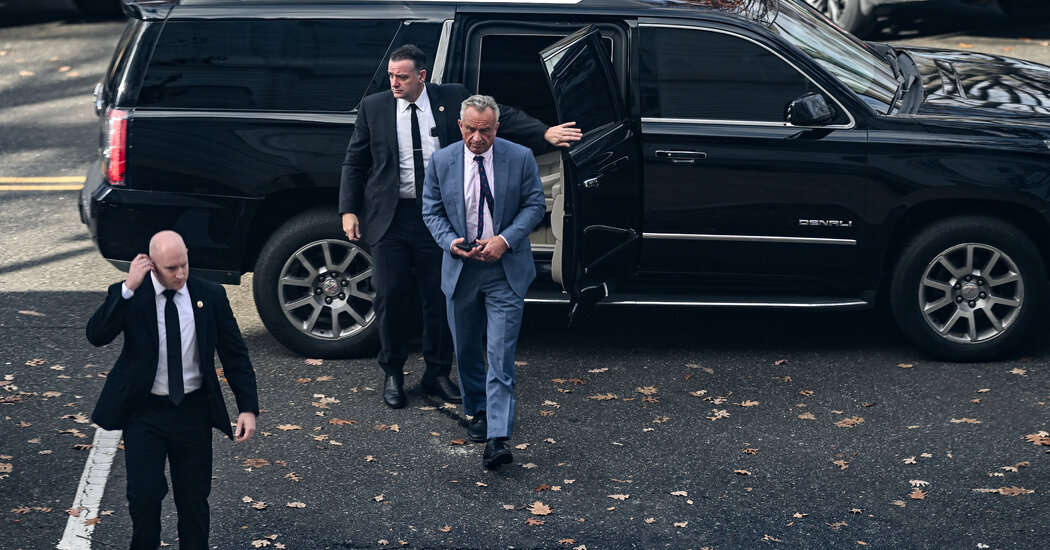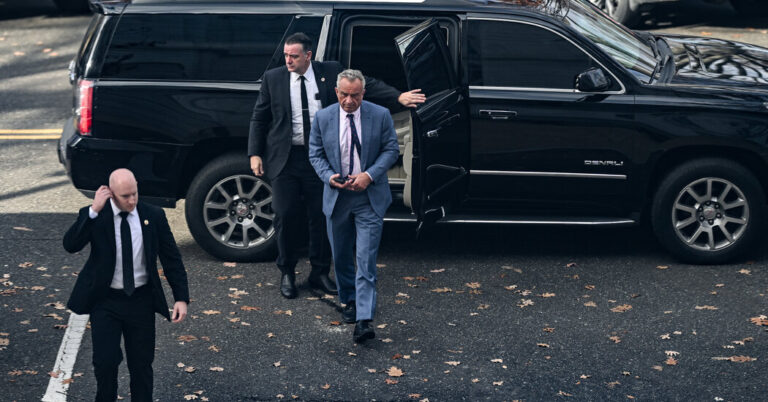Robert F. Kennedy Jr., President Trump’s pick for health secretary, maintains his financial stake in major litigation against Merck over a widely used vaccine given to young people, according to ethics filings made public Wednesday and court documents. This conflict of interest could raise questions for lawmakers as Mr. Kennedy aims to run agencies that regulate the drugmaker.
The ethics documents say Mr. Kennedy will continue to collect fees for cases in which he referred clients to Wisner Baum, a law firm that sued Merck over Gardasil, a vaccine that protects against the human papillomavirus, or HPV, and is given to adolescents to prevent cervical and other cancers later in life.
The deal has earned Kennedy, one of the nation’s fiercest vaccine critics, more than $2.5 million in recent years, according to documents filed with federal election officials for his presidential run and with the Office of government ethics as part of the confirmation process.
A spokesman for Mr. Kennedy did not respond to a request for comment.
The first of many lawsuits alleging young people were harmed by the vaccine is on trial in Los Angeles Superior Court. Mr Kennedy used X, the social media platform, to promote the claims; in 2022 released a video to recruit additional plaintiffs. Merck said the allegations had no merit.
In ethics documents, Mr. Kennedy wrote that he is entitled to receive 10% of fees “awarded in contingency fee cases reported to the firm.” The documents, which note that he is not an attorney in any of the cases, say he would maintain a financial interest in the cases even if confirmed, as long as the cases do not involve the government, such as those brought through the National Vaccine Injury. Compensation Program.
Wisner Baum paid Mr. Kennedy about $856,000 in 2024 and $1.6 million the year before, financial records filed with the government show. It wasn’t clear from the records how much of that money came from cases involving Merck. Mr. Kennedy also worked with Wisner Baum on other litigation, including cases involving the pesticide Roundup.
Agreements like the one presented by Kennedy and signed by the Office of Government Ethics are based on criminal laws that prevent federal officials from acting independently and on regulations that protect against the emergence of conflicts of interest.
The document outlining what Kennedy’s obligations would be is unclear to what extent he would need to sidestep issues related to Merck or the Gardasil vaccine, said Richard Painter, a University of Minnesota law professor and former chief ethics lawyer for the White House. He said the deal appears to be highly problematic, as any action Mr. Kennedy oversees related to Merck could appear motivated by his financial interest in a good deal.
“I think he should recuse a huge sum so as not to appear to be extorting money from Merck,” Mr. Painter said. “And it almost feels like extortion.”
Mr. Painter said he believed senators should refuse to confirm Mr. Kennedy until he resolved the matter. Republican senators are waiting for Kennedy’s financial and ethical disclosures before scheduling his confirmation hearings.
On Tuesday, Senator Mike Crapo, chairman of the Finance Committee, told a reporter that the delay in receiving them means the committee will not hold a hearing for Mr. Kennedy next week, as Mr. Crapo had hoped. It is unclear whether the release of the forms will change this.
Susanne Craig contributed to the reporting.





